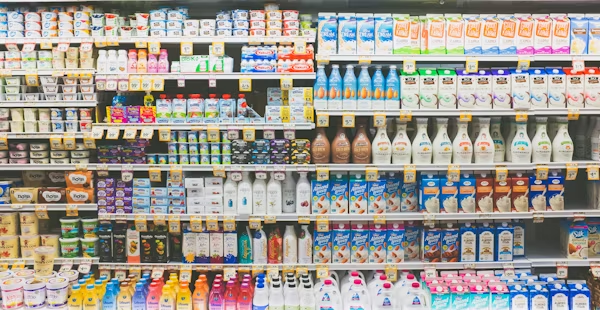Food prices climbed again in August, extending a streak of five monthly increases. Official figures show the fastest rise since early last year.
The cost of food and non-alcoholic drinks rose 5.1% over the year. Beef, butter, milk and chocolate saw the sharpest increases.
Slower price growth in other areas, including air fares, held overall inflation at 3.8%, the same as July.
Economists said supermarkets are passing higher wage and National Insurance costs straight onto shoppers.
Bank of England expected to pause
Inflation remains well above the Bank of England’s 2% target. Analysts expect the central bank to hold interest rates this week.
Chancellor Rachel Reeves admitted families feel squeezed. She pledged to reduce costs and help households cope with rising bills.
Her first Budget introduced higher employer National Insurance Contributions and raised the minimum wage. Businesses warned these moves would drive up prices.
Reeves promised no new borrowing or tax hikes, but speculation grows about possible tax changes in November’s Budget.
Shadow chancellor Sir Mel Stride described rising prices as “deeply worrying”. He said Labour’s policies are fuelling inflation.
Inflation gap with Europe widens
The Office for National Statistics said food and drink prices rose 5.1%, the sharpest jump in 19 months.
It highlighted that UK inflation is higher than in other European economies. France recorded 0.8% in August, while Germany posted 2.1%.
Yael Selfin, chief economist at KPMG, said Britain has become an “outlier” compared to its peers.
She argued domestic policies, especially higher employer National Insurance Contributions, lifted business costs that firms passed on to consumers.
Big jumps in everyday items
Beef and veal prices rose nearly 25% in the year to August. Butter climbed almost 19%, while chocolate rose by 15.4%.
The British Retail Consortium warned food prices are rising faster than average wages, which grew 4.7% between May and July.
Director Kris Hamer said families are struggling as pay fails to keep pace. Clothing and footwear costs eased as retailers cleared summer stock.
Staples like cereals and pasta also declined slightly during the month.
Outlook for rates remains uncertain
ING economist James Smith said inflation at 3.8% complicates the Bank of England’s decisions.
He warned food inflation could climb higher by the end of the year. The Bank has already cut rates five times since last August, lowering borrowing costs to 4%.
Officials expect inflation to peak at 4% in September. Markets broadly predict no change in rates this week.
Capital Economics doubts a cut in November. But economist Paul Dales expects weaker wage growth to bring UK inflation closer to levels in the US and eurozone.
He forecast the Bank will cut rates from 4% to 3% by late next year.
Local bakery counts the cost
Tom Egan, who runs Coosh Bakery in Nottingham with his wife, said butter and chocolate price hikes have hit hard.
Poor cocoa harvests doubled supplier costs. A 10kg batch once priced at £60 now costs more than £150.
Butter prices have jumped 50% in a year as milk imports dropped. Lower supply has driven costs higher.
Egan said the rise in National Insurance Contributions has also hurt. His bakery now delays investment in equipment and technology that could raise productivity.

